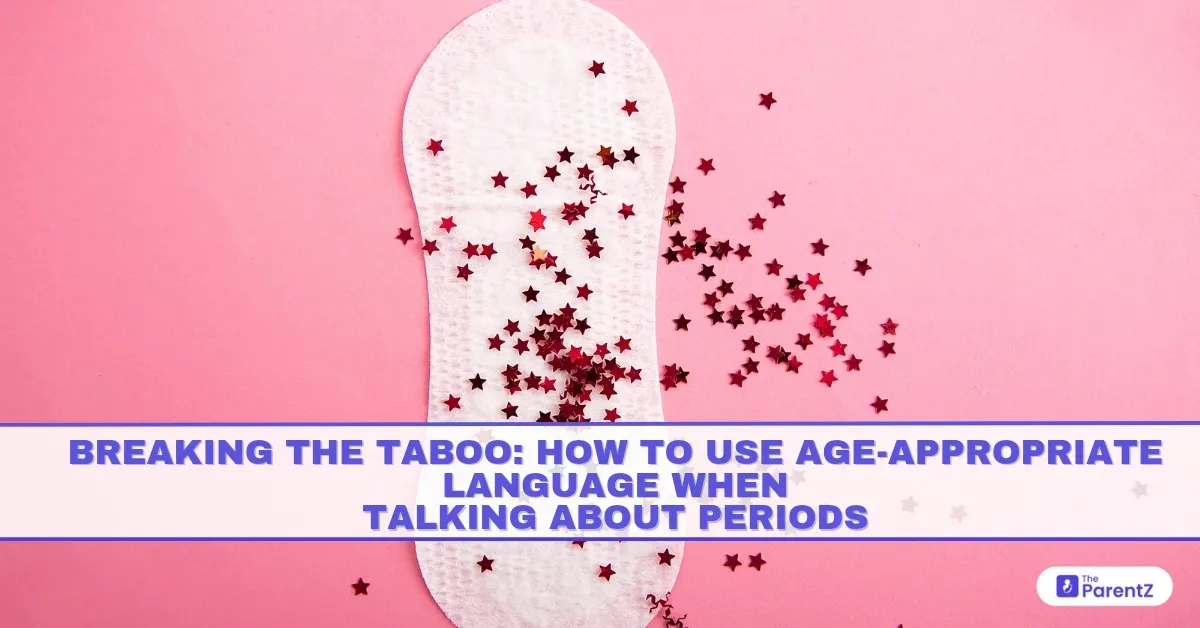Menstruation is a natural biological process, yet it remains taboo in many cultures worldwide, including India. Many parents struggle to discuss it openly, fearing embarrassment or misinformation. However, using age-appropriate language and fostering a healthy dialogue can empower children and normalise conversations about periods.
Menstruation: Facts and Global Statistics
Global Perspective
• The average age of menarche (first period) worldwide is 12 years.
• 1.8 billion people menstruate globally, yet many lack access to basic menstrual hygiene.
• In a UNICEF study, 48% of girls in Iran and 10% in India believed menstruation was a disease when they first experienced it.
• 70% of mothers in India consider menstruation a “dirty” topic and hesitate to discuss it with their daughters.
Indian Scenario
• In India, only 36% of menstruating women use sanitary napkins, while others rely on cloth, ash, or husk.
• In rural areas, 71% of adolescent girls remain unaware of menstruation until their first period.
• Many schools lack proper menstrual hygiene management, leading to 23% of girls dropping out after puberty.
Common Period Taboos Around the World
Global Menstrual Taboos
• Japan: Women are discouraged from making sushi due to the belief that menstruation affects their taste buds.
• Nepal: The outlawed practice of Chhaupadi forces menstruating women to live in huts outside their homes.
• Malawi: Menstruation is considered a “secret,” and girls often receive misinformation.
Menstrual Taboos in India
• Religious Restrictions: Girls are often prohibited from entering temples or touching religious items.
• Kitchen Ban: Many families believe menstruating women should not cook or touch pickles.
• School Absenteeism: Many girls miss school due to fear, stigma, or lack of facilities.
How to Use Age-Appropriate Language When Talking About Periods
For Ages 4-7: Laying the Foundation
• Use simple, positive language: “A period is something that happens when a girl’s body grows up.”
• Explain menstruation as part of nature: “Just like plants grow new leaves, a girl’s body prepares for something special.”
• Normalize it: “Mom, sister, and many women have periods—it’s a healthy part of life!”
For Ages 8-12: Providing Clear Explanations
• Explain the menstrual cycle in simple terms: “Once a month, the body prepares for a baby. If there’s no baby, the body cleans itself with a little blood.”
• Answer questions honestly without embarrassment.
• Introduce period products like pads and tampons and show how they work.
For Ages 13-18: Encouraging Open Conversations
• Discuss emotional and physical changes, including cramps, mood swings, and hygiene.
• Talk about period myths and the importance of challenging them.
• Encourage boys to learn about menstruation to break the stigma.
How to Break Menstrual Taboos and Foster a Healthy Conversation
1. Normalise Period Talk at Home
• Use the word “period” confidently instead of euphemisms like “that time of the month.”
• Share your own experiences with your child to build trust.
2. Educate Both Genders
• Boys should learn about periods to foster empathy and break the stigma.
• Schools should include menstruation in the general health curriculum, not just in girls’ classes.
3. Promote Access to Menstrual Hygiene
• Support NGOs working to provide menstrual products to underprivileged communities.
• Encourage schools to offer free sanitary pads.
4. Challenge Myths and Superstitions
• If someone says, “Don’t enter the temple,” ask “Why?” and start a discussion.
• Explain that menstruation is a biological process, not impurity.
5. Encourage Body Positivity and Self-Care
• Teach your child that periods are not something to be ashamed of.
• Encourage self-care practices like healthy eating, exercise, and using a heating pad for cramps.
Call to Action: Empower Your Child Today!
It’s time to break the silence around menstruation! Start by:
Talking about periods using simple, honest words.
Encouraging your child to ask questions without fear.
Educating both girls and boys about menstruation.
Challenging period myths and advocating for menstrual hygiene.
By having open conversations, we can create a world where periods are no longer taboo but embraced as a natural part of life!






Be the first one to comment on this story.